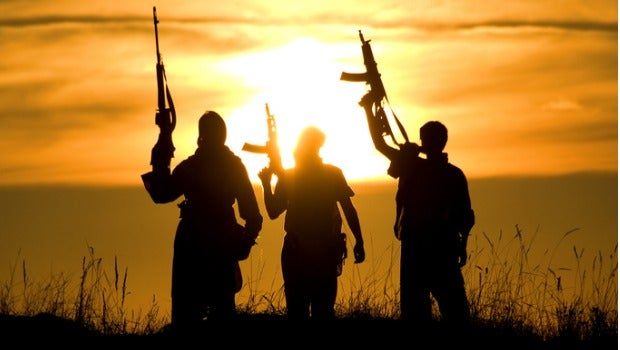Gayle Tzemach Lemmon is a senior fellow at the Council on Foreign Relations, contributor to Defense One and author of “Ashley’s War.” She is speaking at the 2016 Aspen Security Forum. In this Q&A she discusses growing privacy concerns after the Snowden leak, women in the military, and more. Watch her panel, “The Security State,” live on July 29th at 11:30AM MT.
Aspen Institute: President Barack Obama campaigned in 2007 on the promise to close the Guantanamo Bay detention camp, and yet it is still open today. Will any future president be able to close this controversial prison or are the politics and logistics too complicated and difficult?
Gayle Tzemach Lemmon: Discussing closure of Guantanamo is far easier than actually closing it, as most everyone close to this issue has learned over the past decade. Right now, given that we are in a moment of rising walls and growing fears, we are unlikely to see Guantanamo close in the near-term. The largest question is where do they go and who accepts them? Given the Syria crisis and the massive displacement it has created, alongside the security challenges Europe is now facing, it is hard to imagine this issue being resolved in the immediate future.
AI: Since the Snowden leak, the public has become aware of the limited ability of the state to surveil private communications and more. Do you think that the privacy of US citizens is adequately protected?
GTL: Citizens have now begun to think very differently about privacy and their expectations of it since the Snowden leak. The question is, how do you balance the need for privacy against the demand for security? More people understand their privacy is at risk and they want to protect it, but they are also willing to shed some privacy in exchange for their security. The more pervasive and intrusive technology becomes in our lives, the harder privacy becomes to protect and safeguard.
AI: The dominant response to global threats over the last 15 years has been kinetic military force. Some argue that what’s needed is an emphasis on democratic rights and economic development. How would you design a strategy to combat global terror through human development?
GTL: We have a challenge, and it is a mismatch of timelines. The urgent need for counter-terror operations is driven by long-term grievances and we have no medium-term strategy to address those issues. Nor do we show an appetite for anything that begins to resemble the fourteen-letter word “nation-building.” This means that what is happening in Syria is largely a counter-terror operation, which will be handed over post-liberation to an underfunded stabilization effort amid a likely continuing insurgency. How does this circle that demands continuing counter-terror operations get broken? When do governance issues receive attention and investment at a level that matches their urgency? The next administration will have to tackle this question.
AI: How do the rise of lone wolf attacks like the kind in Orlando change the security goals of the state, and what are the implications of any new strategy on the privacy of citizens?
GTL: We have reached a moment in which many in the public fear the domestic terror threat in a way that outweighs—or at the very least overshadows—privacy concerns. The public mood is one that tolerates conversation about digging deeper into people’s personal lives and of stripping segments of society of civil liberties. It is a moment in which standing up for American values and principles is not just necessary, but urgent.
AI: Given your book, “Ashley’s War,” you are uniquely qualified to talk about women in the military. The Obama administration has slowly rolled back regulations against women serving in combat and in various branches of the military. Do you think full integration of women into all possible combat roles is possible, and if so, when will it occur?
GTL: Regulations have caught up to battlefield reality. All roles in the military are now open to women. Women now serve in the infantry. The first class of West Point cadets was able to choose to enter Infantry and Armor. Women have sought consideration to become SEALs. And two women are set to enter Special Forces Assessment & Selection. This is a question of force readiness and combat preparedness.
Part of why this conversation feels so foreign after roughly 300,000 women have deployed to Iraq and Afghanistan and more than 160 have given their lives for America is that less than one percent of this country has fought 100 percent of its wars for 15 years with far too few paying attention. “Ashley’s War” told one story of women on the special operations battlefield alongside Rangers and SEALs while the combat ban remained very much in place, and there are many more out there to be told.

